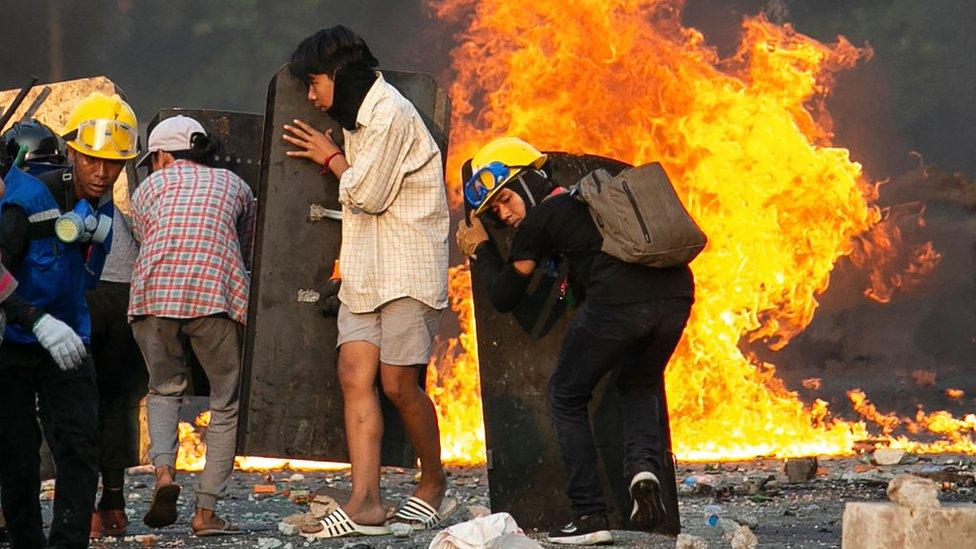Myanmar coup: Generals celebrated amid global fury over massacre
- Published
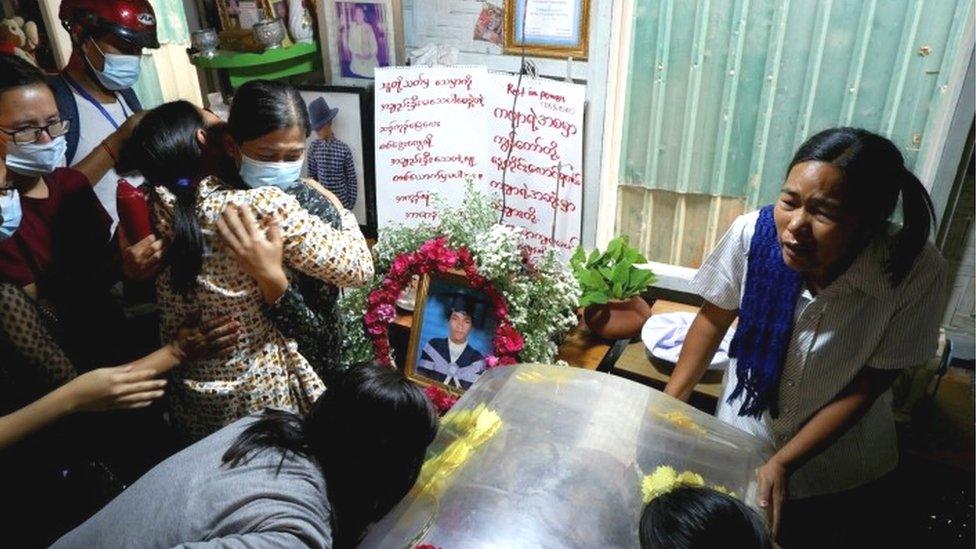
Mourners at the funeral on Sunday for protester Kyaw Win Maung in Mandalay
The killing of more than 100 anti-coup protesters in Myanmar has drawn global outrage, with defence ministers of 12 nations condemning the military.
The US accused the security forces of a "reign of terror" on Saturday, the deadliest day since last month's coup.
Coup leader Min Aung Hlaing and his generals still threw a lavish party that night for Armed Forces Day.
On Sunday, funerals were held, with some reports the military had tried to intervene in the mourning.
More than 400 people have now been killed in the suppression of protests in Myanmar since the 1 February coup.
The military seized control of the South East Asian country after an election which Aung San Suu Kyi's National League for Democracy (NLD) party won by a landslide.
What has the international response been?
The defence chiefs of a dozen nations, including the UK, on Sunday issued a rare joint statement condemning the military's violent actions.
The US, Japan and Australia were also among the signatories of a statement that said: "A professional military follows international standards for conduct and is responsible for protecting - not harming - the people it serves."
The UK government has also urged all British nationals in Myanmar to "leave the country as soon as possible".
The Foreign, Commonwealth and Development Office (FCDO) said the advice "follows the significant increase in violence on 27 March".
"We were previously advising British nationals to leave unless they had an urgent need to stay," it added.
Security forces opened fire in more than 40 locations on Saturday. The commercial centre, Yangon, saw dozens of deaths, but killings were recorded from Kachin in the north to Taninthartharyi in the far south.
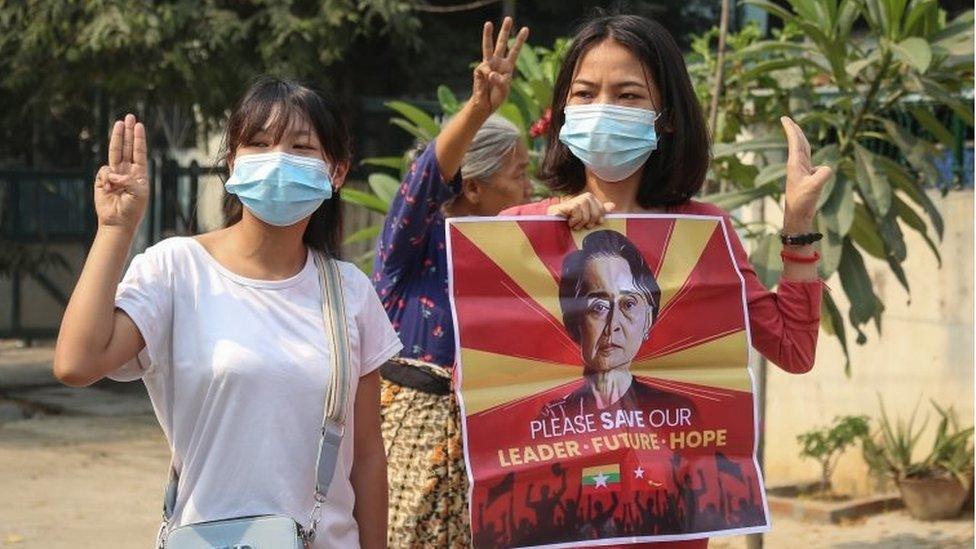
Demonstrators with an image of detained leader Aung San Suu Kyi in Mandalay
The US said it was "horrified" by the killings. Secretary of State Antony Blinken accused the military of "sacrificing the lives of the people to serve the few."
UN Secretary-General Antonio Guterres said he was "deeply shocked" by the violence, and British Foreign Secretary Dominic Raab called it a "new low".
UN Special Rapporteur Tom Andrews called for an international emergency summit.
China and Russia have not joined the criticism, which means taking action through the UN Security Council - where they have vetoes - could be difficult.
Why did the generals attend a gala?
The luxury military party on Saturday was held to mark the annual Armed Forces Day, which commemorates the start of Myanmar's military resistance against Japanese occupation in 1945.
Images from state TV shared on social media showed military officials, including Min Aung Hlaing, wearing white uniforms and bow ties, walking along a red carpet smiling, and seated at large tables for dinner.
The event drew an angry response from some on social media, including Burmese activist Maung Zarni.
Allow X content?
This article contains content provided by X. We ask for your permission before anything is loaded, as they may be using cookies and other technologies. You may want to read X’s cookie policy, external and privacy policy, external before accepting. To view this content choose ‘accept and continue’.

A number of Twitter posts placed pictures of the party alongside images of victims.
Earlier on Saturday, the military held a parade and heard a speech from Min Aung Hlaing, who said he wanted to "safeguard democracy" but also warned against "violent acts".
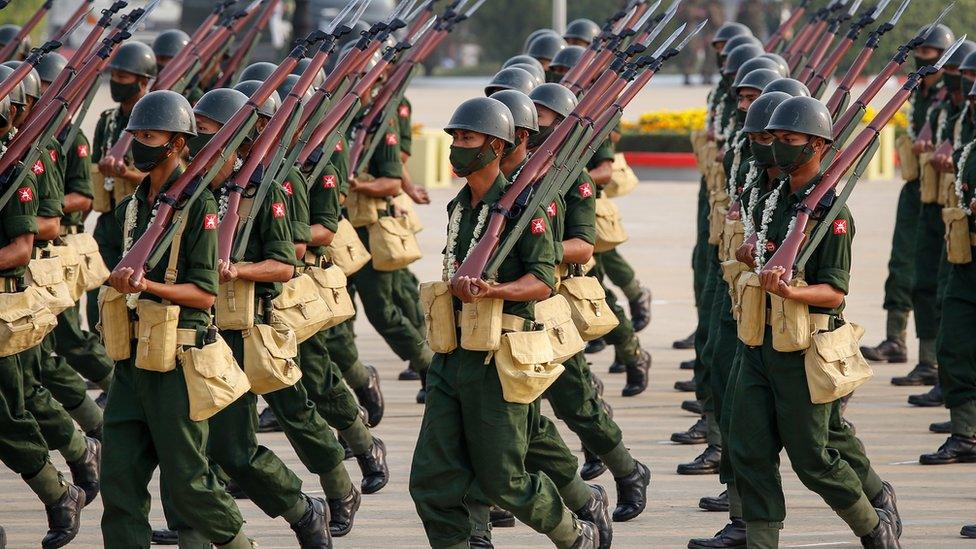
The military held a parade to mark Armed Forces Day
Representatives of Russia, China, India, Pakistan, Bangladesh, Vietnam, Laos and Thailand attended.
What's the latest on the streets?
On Sunday, families held funerals for some of those killed the day before.
One was for Kyaw Win Maung, who was shot dead in Mandalay.
Another service in the city was held for Aye Ko, a father of four.
"We are told by the neighbours that Aye Ko was shot and thrown into the fire," one relative told AFP news agency. "He was the only one who fed the family, losing him is a great loss for the family."
Witnesses told Reuters news agency that security forces opened fire at a funeral for a 20-year-old student in the city of Bago
"While we [were] singing the revolution song for him, security forces just arrived and shot at us," a woman who was at the service said. "People, including us, ran away as they opened fire."
There were no immediate reports of casualties.
There were no reports of large-scale protests in Yangon or Mandalay, which saw the most casualties in Saturday's crackdowns. But there were rallies in towns including Katha and Hsipaw, according to reports.
Twelve deaths were recorded on Sunday by the Assistance Association for Political Prisoners (AAPP) advocacy group.
Myanmar coup: How did we get here?

Children among the dead and injured
Moe Myint, BBC Burmese
Fourteen-year-old Pan Ei Phyu's mother says she rushed to close all the doors when she heard the military coming down her street. But she wasn't fast enough. A moment later, she was holding her daughter's blood-soaked body.
"I saw her collapse and initially thought she just slipped and fell. But then blood spurted out from her chest," she told BBC Burmese from Meiktila in central Myanmar.
It was the randomness of Saturday's killings that was particularly shocking. Armed with battlefield weapons, the security forces appeared willing to shoot anyone they saw on the streets. The brutality they showed they were capable of is on another level from what we have seen since the coup.
Neither side - the military nor the pro-democracy movement - is willing to back down. The military thinks it can terrorise people to achieve "stability and security". But the movement on the streets, led by young people, is determined to rid the country of the military dictatorship once and for all.
It's painful to have to count the mounting dead, especially the children.

Myanmar profile
Myanmar, also known as Burma, became independent from Britain in 1948. For much of its modern history, it has been under military rule
Restrictions began loosening from 2010 onwards, leading to free elections in 2015 and the installation of a government headed by veteran opposition leader Aung San Suu Kyi the following year
In 2017, Myanmar's army responded to attacks on police by Rohingya militants with a deadly crackdown, driving more than half a million Rohingya Muslims across the border into Bangladesh in what the UN later called a "textbook example of ethnic cleansing"

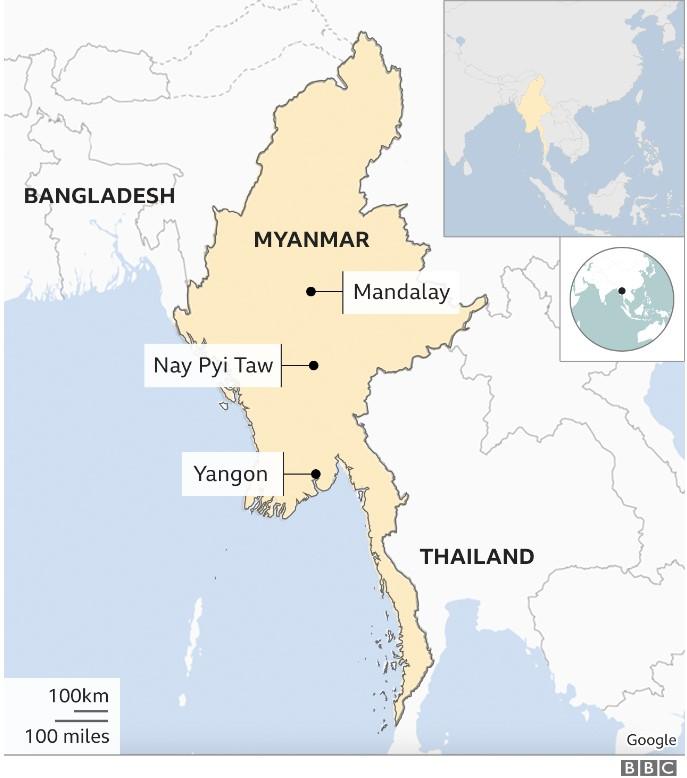

Related topics
- Published1 February 2021
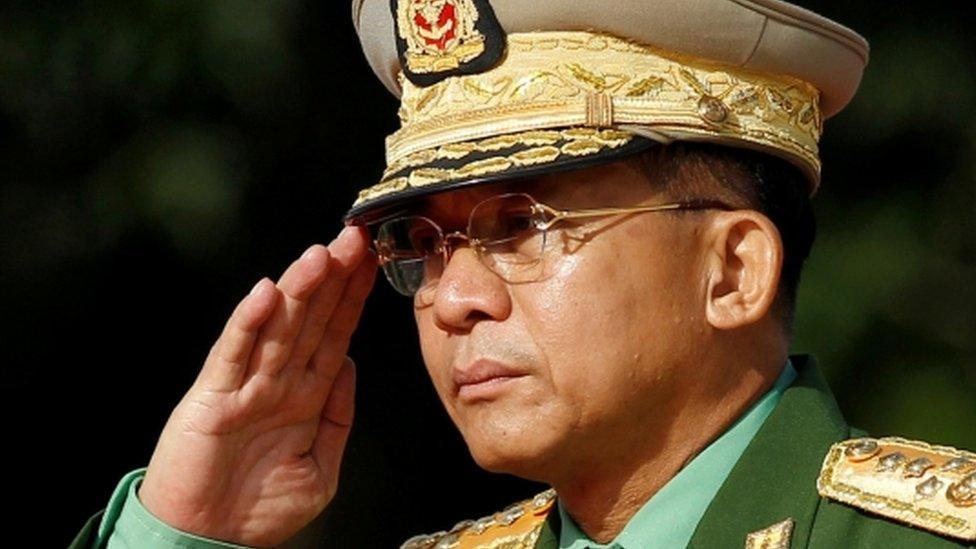
- Published25 July 2022
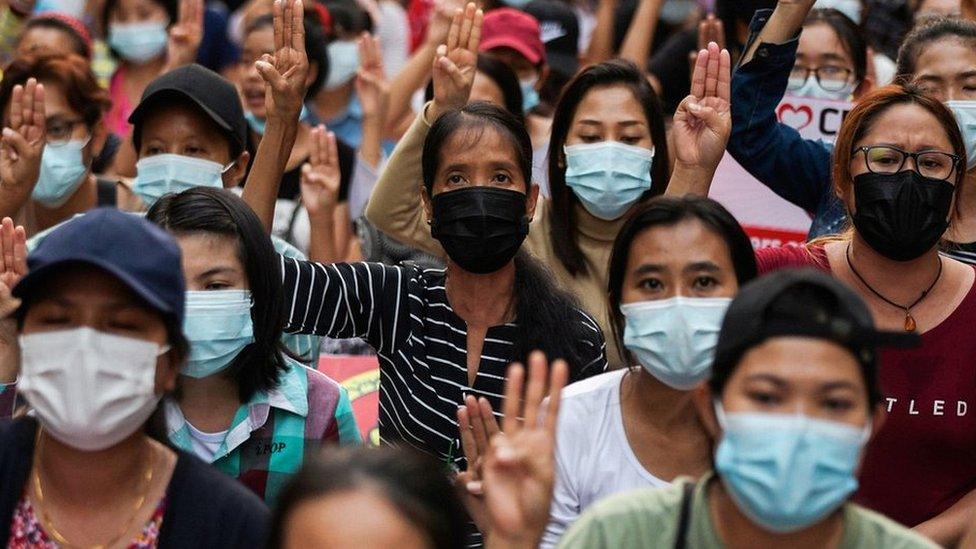
- Published21 March 2021
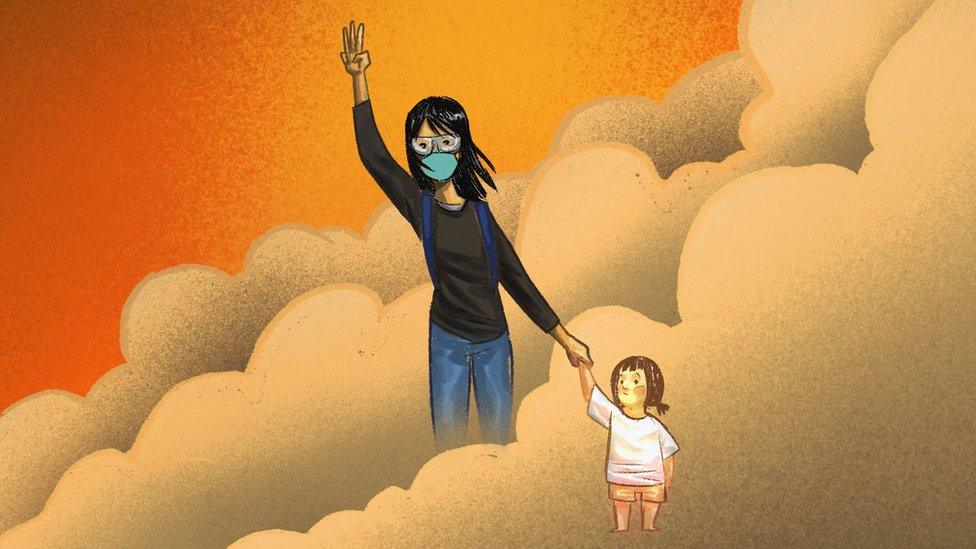
- Published9 April 2021
